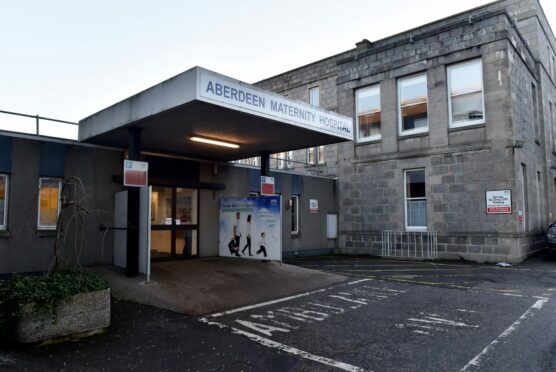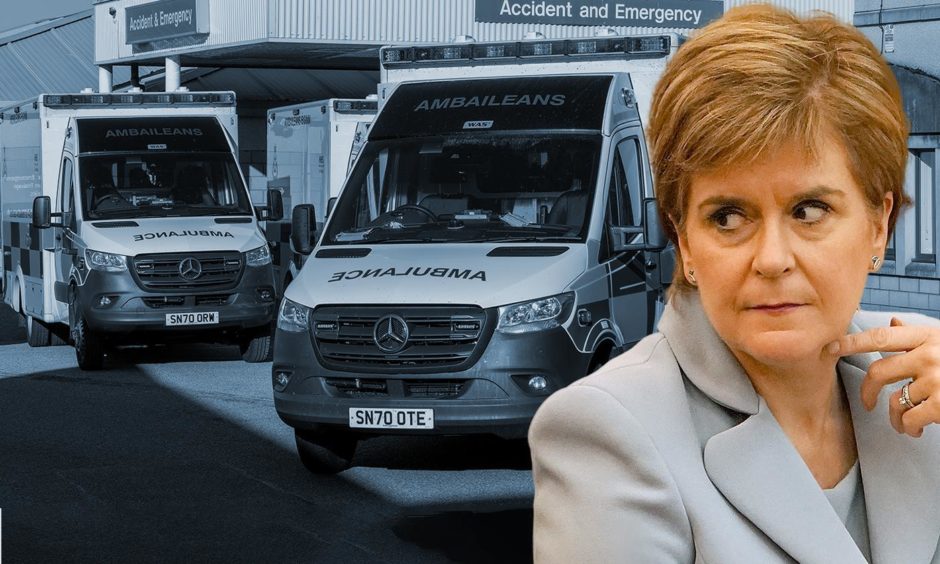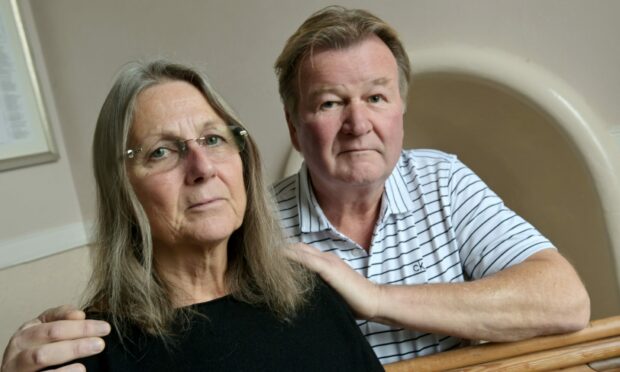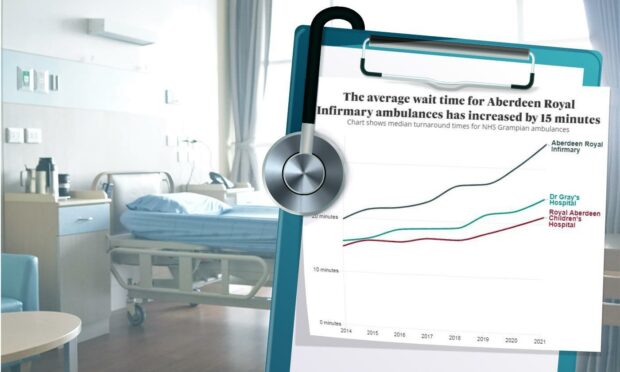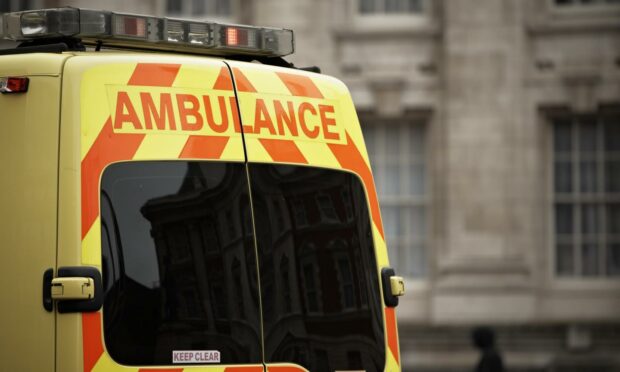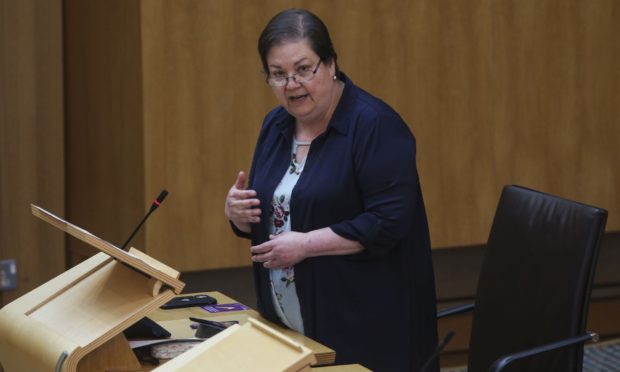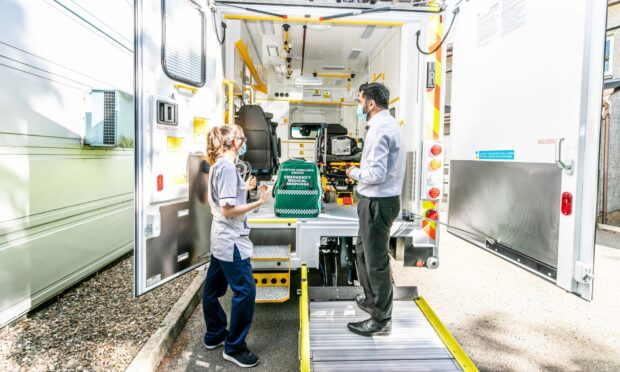A Covid-positive pregnant woman from Moray was forced to wait more than five hours for an ambulance to take her on a four-minute journey from Aberdeen Royal Infirmary to the maternity hospital.
The woman, who was 31 weeks pregnant, tested positive for Covid-19 but required hospital treatment for worsening symptoms.
The woman first went to Dr Gray’s Hospital in Elgin but was forced to wait four and a half hours to be taken through to Aberdeen for treatment.
She then had to wait a further five hours to be transferred between Aberdeen Royal Infirmary (ARI) and Aberdeen Maternity Hospital.
Five-hour wait
The experience was raised by Scottish Conservative leader Douglas Ross in a Holyrood debate on ambulance services across Scotland.
“This is one of the examples I’ve not been able to get my head around,” he said.
“She required a scan at one point during her stay at Aberdeen Maternity Hospital and she had to go from the maternity unit to ARI.
“And because she was Covid-positive she had to get an ambulance – and I know Covid complicates things – but that journey from the maternity unit to ARI is on Google maps a four minute journey.”
The Highlands and Islands MSP added: “After she had received her scan – and she wasn’t able to eat in advance of the scan – she had a five and a half hour wait for an ambulance to take a 31-week pregnant woman from ARI back to Aberdeen maternity unit which is a four minute drive.”
He claimed ambulance service chief Pauline Howie had agreed it was “not acceptable”.
It’s the latest example in a waiting times crisis which has seen the military drafted in to ease pressure on paramedics.
In Holyrood on Tuesday, Health Secretary Humza Yousaf said “particular issues in relation to rural communities, remote communities, island communities, perhaps haven’t got quite the airing or the focus over the last few weeks”.
However, the SNP politician said while there were issues before Covid-19, he would “reject the assertion the ambulance service wasn’t performing well pre-pandemic”.
Lack of rural ambulance provision
MSPs heard that the ambulance crisis has been a “familiar tale for too long” in rural communities across the north and north-east.
Conservative MSP Alexander Burnett said the “shocking story” of Gerald Brown in Glasgow, who died following a 40-hour wait for an ambulance, was an experience familiar to those in rural areas across across the two regions.
Mr Burnett, who represents Aberdeenshire West, said ambulance provision in rural communities across the north and north-east has been lacking for years.
He pointed to the ambulance in Braemar which was removed in 2007, leaving the local community still without a “satisfactory replacement”.
He shared with MSPs the experiences of three constituents who had died or suffered in “agony” waiting for ambulances with enough crew to travel to hospital.
The MSP said: “NHS Grampian and the Scottish Ambulance Service work round the clock to keep the north-east safe but they’ve been failed by the lack of rural ambulance provision in Deeside and elsewhere.
“These heartbreaking stories of people dying and suffering in agony while waiting for an ambulance must be a wake-up call to the SNP government.”
Highlands and Islands MSP, Jamie Halcro-Johnston, said there have “always been unique challenges in providing ambulance cover in rural and island communities”.
Crisis conditions
First Minister Nicola Sturgeon said last week that the NHS is facing “crisis conditions” as a result of the Covid-19 pandemic but stressed the situation is replicated across the UK.
Hundreds of firefighters, military personnel and taxi drivers are being drafted in to help bail out Scotland’s crisis-hit ambulance service.
Responding to the situation in Braemar, a Scottish Ambulance Service spokeswoman said it is currently “engaging with the local community representatives and are looking at a number of areas”.
She added that the Braemar area continued to be served by ambulance stations in Ballater, Tomintoul, Alford and Banchory.
